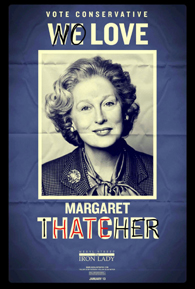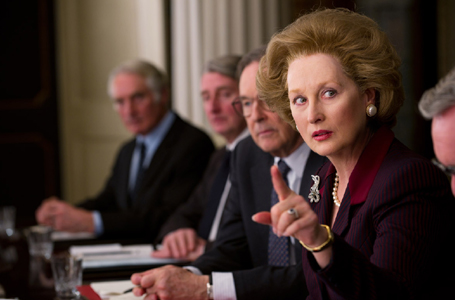
[Caption]
The biopic criss-crosses between timelines to present a series of glitzy, if not quite hagiographic, snapshots of Thatcher’s political career. Sadly, the script plays like a telemovie biopic, shuttling between sentimental pathos (Thatcher as a senile old woman who hallucinates her long-dead husband) and gaudy if empty triumphalism (obligatory scenes recreating famous political soundbites from Thatcher – all taken out of context).
There is a simple measure for biopics and films about historical figures. A biopic fails when one has to rely on my knowledge and understanding of history to appreciate the film. A biopic passes with flying colours if it offers new insights that illuminate one's appreciation and understanding of history.
The biggest flaw of The Iron Lady is its disengagement with this principle. It strips Margaret Thatcher of Thatcherism. Imagine a film about a conviction politician that refuses to address the very ideas that politician resolutely believed in. The Iron Lady is that film. Why was Margaret Thatcher such a polarising, controversial politician even at the peak of her popularity? We'll never find out from watching this film, whose Thatcher says some very blindingly obvious, commonsensical things. Is that all it took to propel her into leadership and split British society? Come on!
The Iron Lady will not please supporters of Margaret Thatcher because it is not a celebration of Margaret Thatcher as a politician and thinker. Neither will it please her detractors because it cheapens the value of their opposition to what she stood for. As a film on a historical personage, the script says and shows far less than it should, and is saved only by the sheer force of Meryl Streep, who does deserve an Oscar for her efforts.

